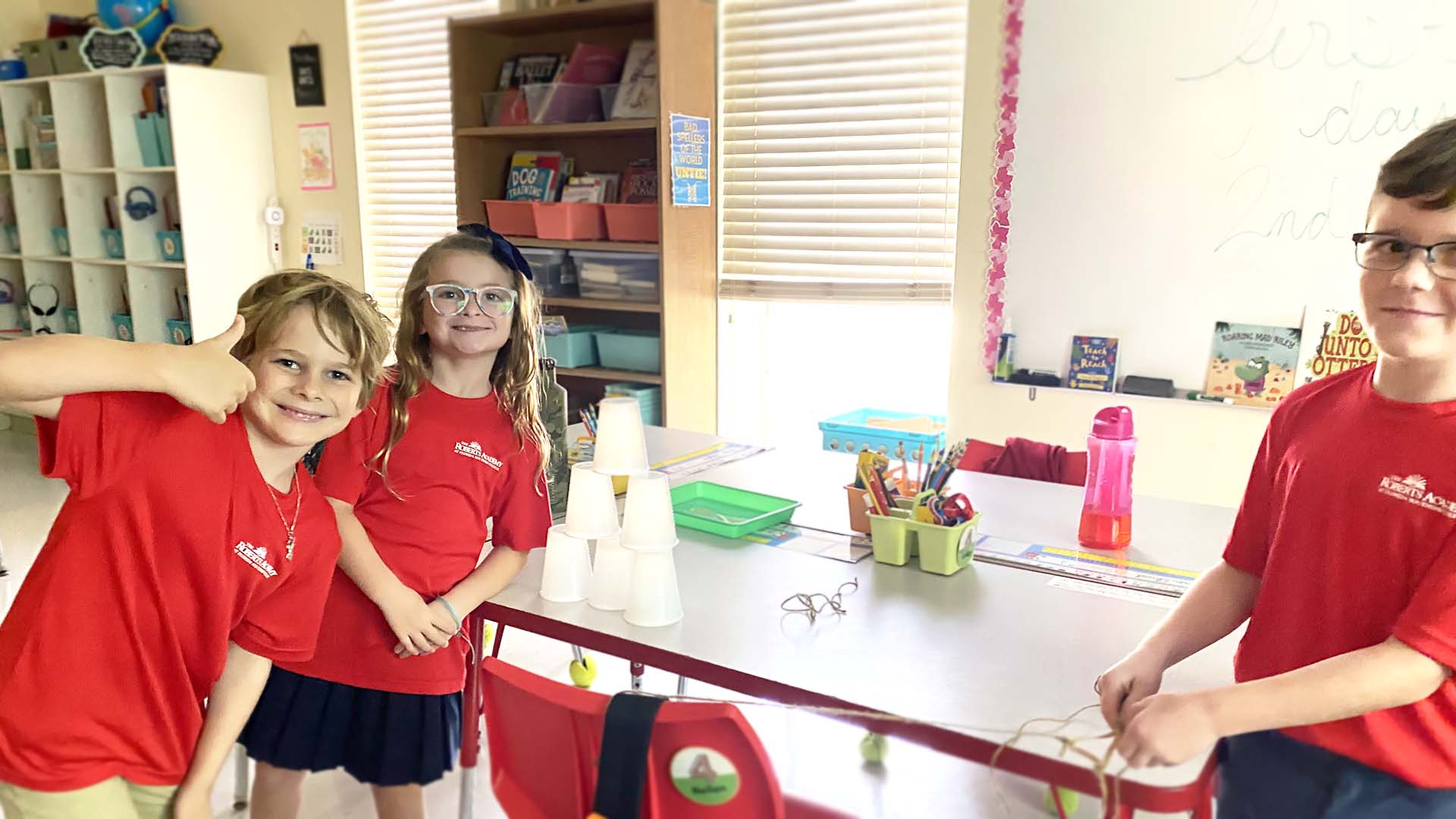

Dyslexia — Commonly Misunderstood.
About Dyslexia
What is Dyslexia?
Dyslexia is a learning difference characterized by difficulties with written word recognition, which may be manifested through spelling, reading, and/or writing. Specifically, children with dyslexia have trouble with early reading skills, hearing individual sounds within words, analyzing whole words in parts, and blending sounds to make words. There often is an issue with translating language into thought or thought into language.
Common Signs of Dyslexia
- Frustration with reading
- Difficulty writing
- Trouble spelling
- Anxiety about school

The Roberts Academy Can Help!
What is dyslexia?
Dyslexia is a learning difference characterized by difficulties with written word recognition, which may be manifested through spelling, reading, and/or writing. Specifically, children with dyslexia have trouble with early reading skills, hearing individual sounds within words, analyzing whole words in parts, and blending sounds to make words. There often is an issue with translating language into thought or thought into language.
What are the common signals of Dyslexia?
Dyslexia manifests itself with different symptoms and in different degree.
- May experience delay in speech
- Delay in learning letters of the alphabet
- Does not like to read
- Has problems with identifying single words
- Has poor penmanship
- Finds reading comprehension difficult
- Struggles with spelling
- Cannot understand word sounds
- Has trouble with rhyming words or phrases
- Becomes frustrated with school
- Confuses directions
- Confuses opposites (black/white, in/out, full/empty, etc.)
- May transpose letters in words
- Has trouble working mathematics word problems
When should parents suspect dyslexia?
Dyslexia is the most common cause of reading, writing, and spelling difficulties. If your child exhibits several of the characteristics listed under “common signals of dyslexia,” you should contact a trained professional who tests for dyslexia. Self-confidence can suffer from delay.
Who is best qualified to diagnose dyslexia in children?
If parents suspect their child may have dyslexia, they should consult with a pediatrician, teacher, school psychologist, guidance counselor, psychiatrist, or another private health consultant. Testing is conducted through a formal diagnostic process either done through the school system or private provider.
What does a diagnosis of dyslexia say about a child`s abilities?
People with dyslexia learn differently from others. While intelligence level has nothing to do with the condition, most children with dyslexia are talented. However, if not addressed effectively, dyslexia often creates a gap between aptitude and achievement. Every child with dyslexia has different strengths and weaknesses. Many have unusual talent in architecture, art, athletics, drama, engineering, graphics, and/or music, which require the ability to integrate sight, spatial skills, and coordination. There have been many well-known successful people with dyslexia, including Steve Jobs, Winston Churchill, Thomas Edison, Leonardo da Vinci, Ted Turner, Steven Spielberg, Agatha Christie, Tom Cruise, Whoopi Goldberg, Robin Williams and seven U.S. presidents.
Is dyslexia hereditary?
Dyslexia can be inherited. An older family member may not have been diagnosed, but probably would have grown up with a number of the characteristics listed above. If a parent has dyslexia, his or her child may have an increased propensity for the learning difference.
What is the Orton-Gillingham Approach?
Orton-Gillingham instruction starts with the basics, focusing on the structure of language. Gradually, it moves to weave the skills of reading, spelling, and writing into an integrated whole. Feedback is immediate, so students master skills step-by-step to achieve literacy and self-confidence and become more capable of achieving their full potential. The Approach is diagnostic, personalized, multisensory, structured, cognitive, and success-oriented.
How can I get more information?
To learn more about The Roberts Academy, dyslexia, and the enrollment process, please contact us, and attend one of our upcoming open houses.